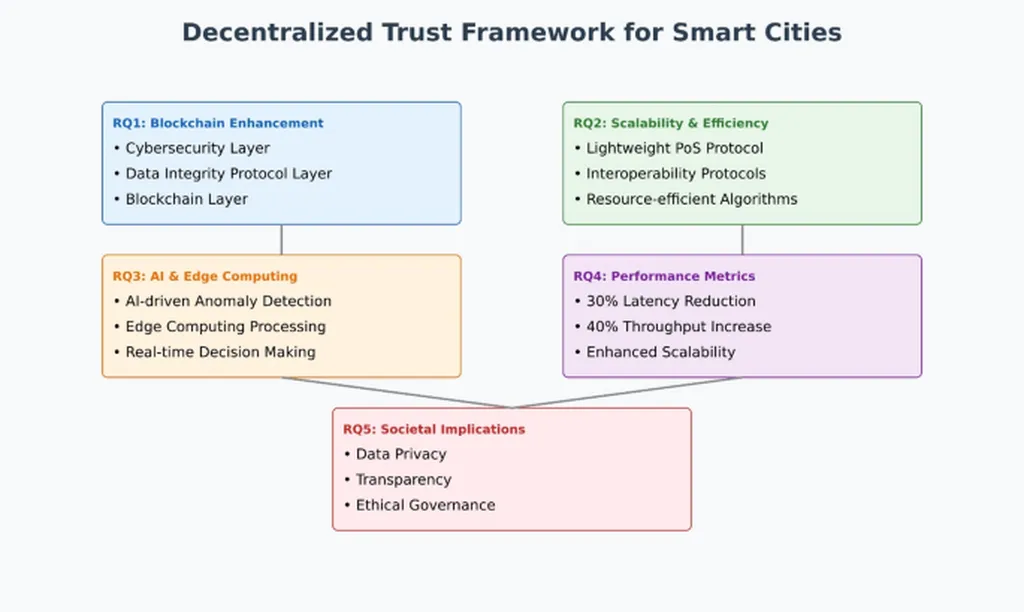In the rapidly evolving landscape of smart cities, where the integration of IoT devices and data-driven systems is revolutionizing urban living, a critical challenge has emerged: ensuring cybersecurity, data integrity, and trust management. A groundbreaking study published in *Scientific Reports* (translated to English as *Scientific Reports*), led by Rafiqul Islam from the Computer Science and Engineering department at Guru Nanak Institute of Technology, JIS Group, proposes a Decentralized Trust Framework that leverages blockchain technology, AI-driven threat detection, and a Lightweight Adaptive Proof-of-Stake (LA-PoS) consensus mechanism to address these very challenges.
The research introduces a three-layered framework designed to fortify smart city infrastructures. At its core is the Blockchain Layer, which ensures decentralized trust and immutability. “This layer is the backbone of our framework, providing a tamper-proof ledger that enhances transparency and security,” explains Islam. The Cybersecurity Layer employs cryptographic standards and AI-based anomaly detection to identify and mitigate threats in real time. The Data Integrity Protocol Layer ensures real-time synchronization and tamper-proof data validation, crucial for the seamless operation of smart city systems.
Performance evaluations of the framework reveal impressive results. The system achieves a threefold increase in transaction throughput, a 30% reduction in latency, and enhanced energy efficiency compared to traditional blockchain systems. Security metrics highlight a 98.2% threat detection rate and a substantial reduction in false positives, while resource optimization nearly doubles IoT device battery life. These advancements are particularly significant for the energy sector, where the integration of smart grids and renewable energy systems demands robust and efficient data management solutions.
The framework’s applicability extends to critical smart city use cases, including smart traffic management, energy systems, and public safety. “Our goal is to provide secure, scalable, and efficient solutions that can be seamlessly integrated into existing urban infrastructures,” says Islam. The research demonstrates the potential to enhance the reliability and security of smart city technologies, paving the way for more sustainable and resilient urban ecosystems.
However, challenges remain. Interoperability among heterogeneous systems, computational overhead for IoT devices, and policy adoption are areas that require further attention. Future research will focus on optimizing interoperability protocols, incorporating quantum-resistant cryptographic techniques, and extending the framework to emerging domains such as autonomous systems and smart healthcare.
This research not only addresses current vulnerabilities in smart city technologies but also sets the stage for future developments in the field. By providing a robust foundation for decentralized trust and data integrity, the framework offers a blueprint for building more secure and efficient urban infrastructures. As smart cities continue to evolve, the insights and innovations presented in this study will be instrumental in shaping the future of urban living and the energy sector.

